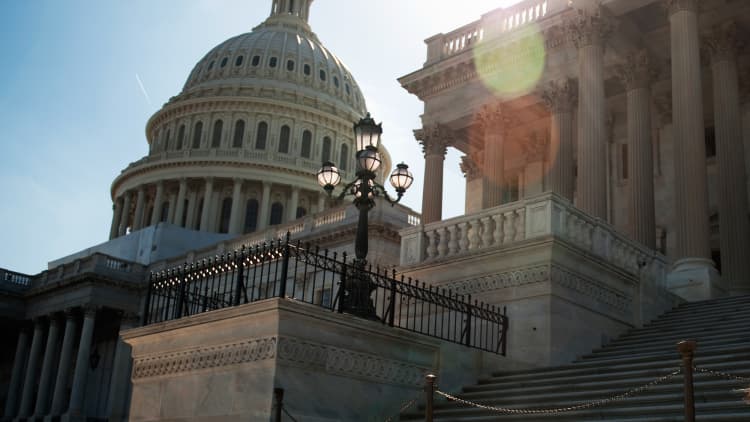House Antitrust Subcommittee Chairman David Cicilline said most mergers should be banned while the coronavirus pandemic devastates businesses across industries.
The Rhode Island Democrat is seeking to include the merger ban in the next stimulus deal, according to his prepared remarks for an event Thursday with the Open Markets Institute, a group that advocates for strong enforcement of antitrust laws. Under Cicilline's proposal, only mergers of businesses that have declared bankruptcy or are about to fail should be allowed during the national emergency.
Ciclline's subcommittee is currently investigating Amazon, Apple, Facebook and Google parent company Alphabet as part of a review of digital markets. He originally planned to wrap up the probe and publish a report by early April, but has acknowledged the pandemic has shifted that timeline. Cicilline previously told CNBC the report would lead to regulatory proposals to make sure the digital marketplace is operating fairly.
The ongoing crisis has raised new questions about the tech probes by federal and state law enforcement agencies. Tech firms like Apple and Google have been at the forefront of government initiatives to fend off the virus, but antitrust experts told CNBC that their efforts would be unlikely to have a tangible impact on any potential antitrust action.
Mergers tend to decline anyway during economic recessions, according to publicly available data from the federal antitrust agencies. But the nature of this crisis centering around a public health matter makes it hard to predict. Still, FTC Commissioner Noah Phillips told Politico at an event last week that the agency had seen less merger activity during the crisis.
Cicilline acknowledged the slowdown in his prepared remarks, but said industry analysts are predicting more deal-making to come. He blamed "mega-mergers" and corporate takeovers for costing jobs and innovation during the last financial crisis and warned against a repeat.
Such a sweeping ban on mergers is unprecedented, according to Politico, though restrictions on certain industries have occurred.
Antitrust enforcers should spend their time during the crisis investigating harmful tactics like price gouging rather than focusing on merger reviews, according to Cicilline. Merger analysis is typically a top priority at the Federal Trade Commission and the Department of Justice because merger laws require they adhere to strict timelines to assess potential harm. The DOJ asked Congress to extend its merger review deadlines by 15 days, according to Politico.
Cicilline suggested that instead of merger reviews, enforcers should focus on more pressing matters, including addressing noncompete clauses that make it difficult for laid-off workers to find new jobs during the pandemic.
"The last thing our country needs right now is expending valuable resources in response to a wave of mega-mergers during a time of crisis," Cicilline said in the remarks.
WATCH: How US antitrust law works, and what it means for Big Tech



